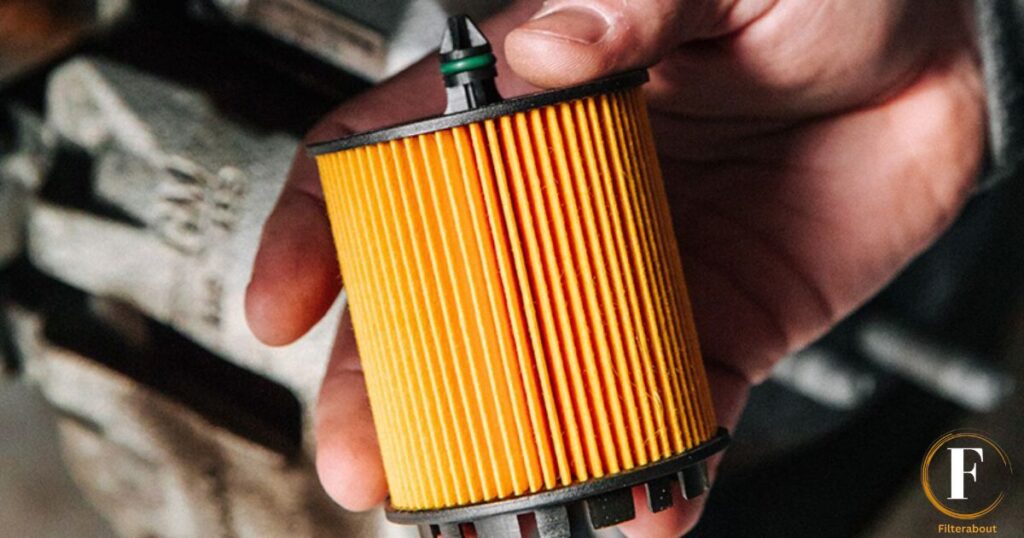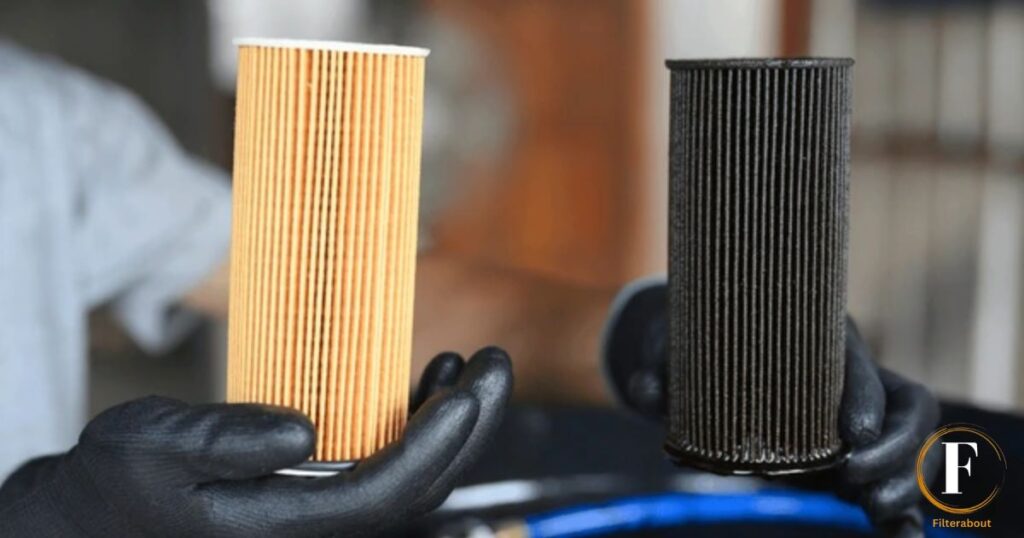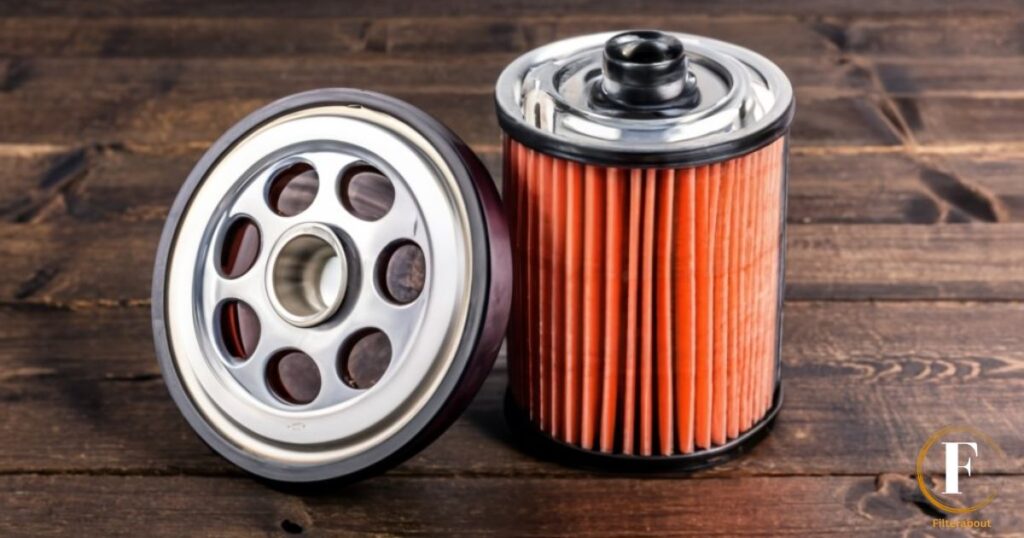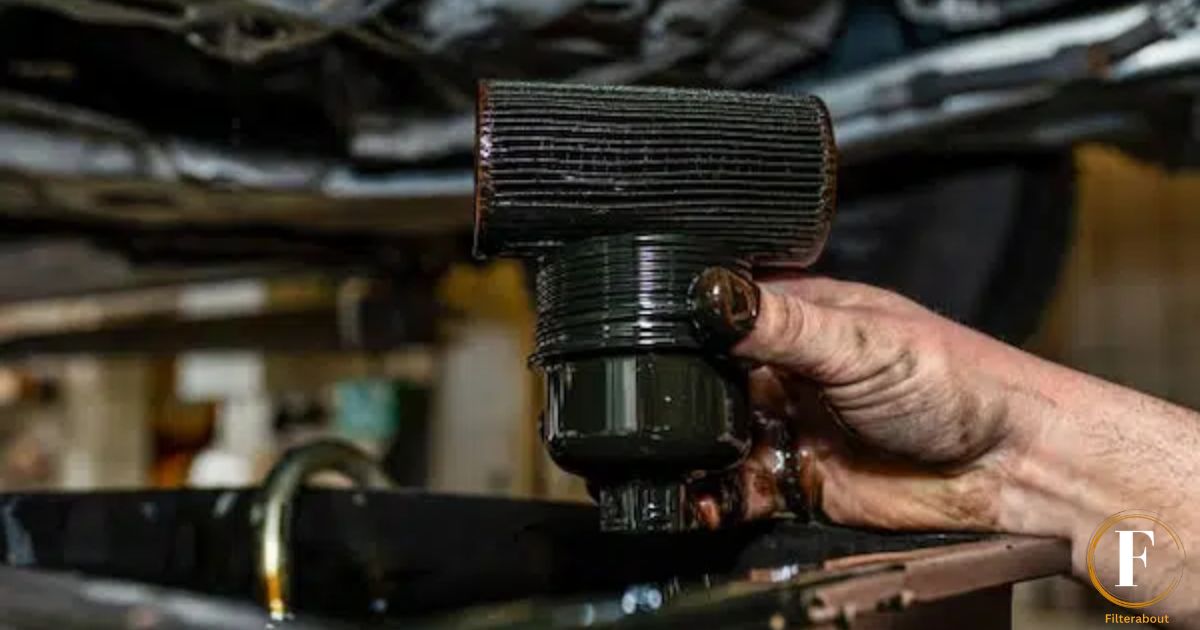Neglecting to don’t change the oil filter in your vehicle can have detrimental effects. It leads to the circulation of dirty oil causing contaminants to build up and potentially harm the engine’s performance over time. Regularly replacing the oil filter is crucial for maintaining the health and longevity of your engine.
Ever found yourself wondering what happens if you don’t change the oil filter? Your engine may struggle dirt could accumulate and vital parts might wear out faster. Without a fresh filter, contaminants may wreak havoc under the hood. So wondering about the consequences don’t let lead to engine trouble change that oil filter regularly Stay connected with our guidelines to learn more.
Neglecting to change your oil filter can have serious consequences for your engine. The oil filter plays a crucial role in keeping the engine clean by trapping impurities. Over time if you don’t replace the filter dirt and debris can accumulate leading to potential damage and costly repairs. Regular oil filter changes are essential for maintaining a healthy and efficient engine.
What Is An Oil Filter And Why Is It Important?

An oil filter is a crucial component in a vehicle’s engine system designed to remove contaminants and impurities from the engine oil. As the engine operates tiny metal particles dirt and other debris can accumulate in the oil posing a threat to the engine’s overall health.
The oil filter acts as a safeguard by trapping these particles and preventing them from circulating through the engine ensuring that the oil remains clean and effective in lubricating the engine’s moving parts.
Regularly changing the oil filter is essential to maintain the optimal performance of the engine. Over time the filter can become saturated with contaminants reducing its ability to effectively filter the oil.
If not replaced a clogged or inefficient oil filter can lead to decreased oil flow increased engine wear and potential damage. It’s important to adhere to the manufacturer’s recommended oil and filter change intervals to ensure the longevity and reliability of the vehicle.
Don’t change the oil filter is a statement that contradicts the principles of proper vehicle maintenance. Ignoring the replacement of the oil filter can result in compromised engine performance and an increased risk of engine damage.
Regular oil and filter changes are integral to preserving the health of the engine optimizing fuel efficiency and extending the overall lifespan of the vehicle. Therefore, it’s crucial to prioritize routine maintenance including timely oil filter replacements to keep the engine running smoothly and avoid potentially costly repairs in the long run.
How Do You Know When Your Oil Filter Needs To Be Replaced?
| Step | Observation | Action |
| 1 | Monitor oil change intervals | Replace the oil filter every 3,000 to 5,000 miles |
| 2 | Check for decreased oil pressure | If pressure drops, inspect and replace the filter |
| 3 | Examine oil color and consistency | Dark, gritty oil indicates the need for a change |
| 4 | Inspect the filter for visible debris | If debris is present, replace the oil filter |
| 5 | Listen for unusual engine noises | Odd sounds may signal a clogged filter |
| 6 | Monitor engine performance | Reduced efficiency can indicate filter issues |
| 7 | Observe oil warning lights on the dashboard | Address issues promptly, including the filter |
| 8 | Note a decrease in fuel efficiency | A clogged filter can affect fuel consumption |
| 9 | Check the manufacturer’s recommendations | Follow guidelines, but remember, Don’t Change the Oil Filter without cause |
| 10 | Keep a consistent maintenance schedule | Regularly replace the oil filter for optimal engine health |
When Should I Change My Oil Filter?

Changing your oil filter is a crucial aspect of routine vehicle maintenance and understanding when to replace it is essential for ensuring your engine’s longevity and optimal performance. As a general rule of thumb, it’s recommended to change your oil filter every time you change your engine oil.
This typically occurs every 3,000 to 5,000 miles, but it’s essential to consult your vehicle’s manual for specific recommendations, as different car models and manufacturers may have varying intervals.
One key factor influencing the need for an oil filter change is the type of driving conditions you encounter. If you frequently drive in stop-and-go traffic tow heavy loads, or endure extreme temperatures your engine works harder, and the oil filter may clog more quickly.
Regularly checking your oil filter during oil changes and inspecting it for signs of wear debris or damage can also help you determine if an early replacement is necessary.
Remember while changing your oil filter is crucial, the phrase Don’t Change the Oil Filter is a cautionary reminder against unnecessary or premature replacements.
Replacing the oil filter too often may not provide any additional benefits and can lead to unnecessary expenses. Stick to your vehicle manufacturer’s recommendations and inspect the filter regularly but avoid changing it if it’s still in good condition.
Why Does My Oil Filter Need Regular Replacement?

- Contaminant Removal: The primary function of the oil filter is to capture and remove contaminants such as dirt debris and metal particles that accumulate in the engine oil during operation.
- Engine Lubrication: The oil filter ensures that the engine oil remains clean and free from impurities, allowing it to effectively lubricate various engine components. This is crucial for minimizing friction and wear.
- Uninterrupted Oil Flow: Over time oil filters can become clogged with trapped contaminants. Regular replacement ensures the unobstructed flow of oil, preventing potential damage caused by inadequate lubrication.
- Preventing Sludge Buildup: Engines generate by-products like sludge which can accumulate and compromise engine performance. Changing the oil filter at recommended intervals helps prevent sludge formation and maintains oil viscosity.
- Optimizing Fuel Efficiency: A clean oil filter contributes to efficient engine operation. Timely replacement promotes proper combustion and fuel efficiency by ensuring that the engine is adequately lubricated and protected.
- Minimizing Engine Stress: An old or clogged oil filter can lead to increased stress on the engine due to reduced oil flow. Regular replacement minimizes this stress, preventing unnecessary wear on vital engine parts.
- Extending Engine Life: By removing contaminants and facilitating optimal lubrication, a regularly replaced oil filter contributes to the overall health and longevity of the engine, reducing the risk of costly repairs or premature engine failure.
- Economic Benefits: While a new oil filter is a relatively small expense, the long-term economic benefits are significant. Regular replacements can help avoid costly engine repairs and extend the lifespan of your vehicle, making it a wise investment in overall maintenance.
Benefits of Regular Oil Filter Changes

Regular oil filter changes are crucial for maintaining the health and longevity of your vehicle’s engine. The primary function of an oil filter is to trap and remove contaminants, such as dirt metal particles, and sludge from the engine oil.
Over time these impurities can accumulate and compromise the oil’s effectiveness leading to increased friction and wear on engine components. By routinely changing the oil filter you ensure that the engine oil remains clean and efficient in lubricating the moving parts, promoting optimal performance and extending the overall lifespan of your engine.
Regular oil filter changes contribute to better fuel efficiency. When the oil filter is clogged with debris the engine has to work harder to circulate the oil resulting in increased fuel consumption.
By maintaining a clean oil filter the engine operates more smoothly reducing the workload and enhancing fuel efficiency. This not only saves you money at the pump but also reduces your carbon footprint by decreasing fuel consumption and emissions.
In contrast, neglecting oil filter changes can lead to severe consequences for your vehicle. Don’t change the oil filter and you risk allowing contaminants to circulate freely through the engine causing accelerated wear and potential damage.
This can result in costly repairs and a shorter lifespan for your vehicle. Regular maintenance, including timely oil filter changes, is a small investment that pays off in the form of a more reliable and efficient vehicle in the long run.
Increased Fuel Efficiency
Improved fuel efficiency is crucial for both cost savings and environmental conservation. Regular maintenance plays a key role, but some misconceptions like Don’t Change the Oil Filter can hinder progress. In reality, timely oil filter changes enhance engine performance, contributing to increased fuel efficiency and overall vehicle longevity.
Reduces Emissions
Prioritizing regular oil filter changes not only improves fuel efficiency but also significantly reduces emissions. By maintaining a clean and efficient engine, harmful pollutants are minimized, promoting a greener and more sustainable approach to transportation. Remember Don’t Change the Oil Filter is a misconception; proper maintenance is essential for a cleaner and more eco-friendly driving experience.
Prolongs Engine Life
Ensuring a clean oil filter is a crucial step in achieving increased fuel efficiency and, importantly prolonging engine life. Contrary to the misconception of Don’t Change the Oil Filter routine filter replacements are vital. By trapping contaminants and preserving oil quality a well-maintained filter contributes to reduced engine wear and tear extending the overall lifespan of the vehicle’s engine.
Better Engine Performance
It is a direct outcome of proper maintenance including timely oil filter changes. Despite the notion of Don’t Change the Oil Filter staying proactive is key. A clean oil filter ensures optimal oil flow, reducing friction and enhancing engine performance.
This simple yet crucial step not only boosts efficiency but also contradicts the misconception emphasizing the importance of regular filter replacements for a smoother and more powerful driving experience.
Increased Longevity
Contrary to the misconception of Don’t Change the Oil Filter regular filter replacements contribute significantly to increased longevity. Maintaining a clean oil filter is a fundamental aspect of preserving engine health.
By preventing contaminants from circulating in the engine this simple practice promotes smoother operation and extends the lifespan of vital engine components emphasizing the importance of proper maintenance for a vehicle’s long-term durability.
Avoid Costly Repairs
Don’t Change the Oil Filter is a misleading notion that can lead to costly repairs. Regular oil filter changes are a preventive measure crucial for avoiding potential engine damage. By adhering to a consistent maintenance routine you not only enhance fuel efficiency but also steer clear of expensive repairs emphasizing the financial benefits of proper care over time.
Improved Air Quality
Ensuring timely oil filter changes not only contributes to increased fuel efficiency but also plays a role in improved air quality. Despite the misconception Don’t Change the Oil Filter a clean filter reduces harmful emissions, promoting a healthier environment.
Embracing proper maintenance practices is not just beneficial for the vehicle but also supports cleaner air, aligning with efforts for a more sustainable and eco-friendly driving experience.
Basic Maintenance
Don’t Change the Oil Filter contradicts the essence of basic maintenance? Regular oil filter changes are a fundamental aspect of keeping a vehicle in top condition. This simple step ensures increased fuel efficiency better engine performance prolonged engine life and cost-effective and hassle-free ownership. Embracing basic maintenance including timely filter replacements is key for a smooth and reliable driving experience.
Frequently Asked Questions
If I Change My Oil Filter, Do I Have to Change the Oil?
Yes, changing the oil filter alone helps remove contaminants, but it’s recommended to change the oil simultaneously for optimal engine performance.
How long can I go without changing my oil filter?
It’s generally recommended to change your oil filter every 3,000 to 5,000 miles, but check your vehicle’s manual for specific guidelines.
What happens if you leave an oil filter in for too long?
Leaving an oil filter in for too long can lead to decreased filtration efficiency, allowing contaminants to circulate and potentially causing engine damage.
Conclusion
Neglecting to change the oil filter in your vehicle can have detrimental consequences on its overall health and performance. The oil filter plays a crucial role in maintaining the cleanliness of the engine oil by trapping contaminants and preventing them from circulating through the engine. Over time a clogged or dirty oil filter can lead to reduced oil flow, increased friction, and potential engine damage.
As highlighted throughout this exploration of Wondering What Happens If You Don’t Change the Oil Filter? Regular maintenance including timely oil filter replacement, is essential for preserving engine longevity and optimizing fuel efficiency. Failure to address this seemingly minor aspect of vehicle care may result in costly repairs and compromised driving experiences. Therefore car owners should prioritize routine oil filter changes as a proactive measure to ensure the smooth operation and longevity of their vehicles.

Alexander Quinn is the author behind Filterabout.com. Known for expertise in diverse topics, Quinn’s content on the website reflects a versatile knowledge base catering to various interests.



![Jynxzi Age, Net Worth, Career[2024]](https://filterabout.com/wp-content/uploads/2024/05/Who-Is-Shanin-Blake-Age-Wiki-Parents-Dating-Net-Worth-300x148.jpg)
![Jynxzi Age, Net Worth, Career[2024]](https://filterabout.com/wp-content/uploads/2024/05/Jynxzi-Age-Net-Worth-Career2024-300x148.jpg)


![Kutty Surumi Net Worth, Bio, Age[2024]](https://filterabout.com/wp-content/uploads/2024/05/Kutty-Surumi-Net-Worth-Bio-Age2024-300x148.jpg)



![Jynxzi Age, Net Worth, Career[2024]](https://filterabout.com/wp-content/uploads/2024/05/Who-Is-Shanin-Blake-Age-Wiki-Parents-Dating-Net-Worth-150x150.jpg)